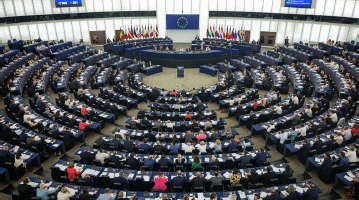The UN Human Rights Committee has raised serious concerns about corruption in Montenegro, especially within the judiciary, and the slow pace of legal proceedings involving high-ranking officials. In its Second Periodic Report, the committee urged the country to accelerate judicial processes related to corruption cases involving prominent public figures, ensuring that perpetrators are held accountable if found guilty.
The committee highlighted inefficiencies within the Anti-Corruption Agency, pointing out the lack of sufficient cooperation with state prosecutors. It called for strengthening the agency’s independence and efficiency by providing adequate resources. Furthermore, the report stressed the need to enhance the capacities of police, prosecutors, and judges in effectively tackling corruption. The committee also recommended that Montenegro adopt a law ensuring the Ombudsman’s institution complies fully with international standards and that it is provided with sufficient financial and human resources to carry out its duties effectively.
On the media front, the committee commended the country for measures to improve journalist safety, such as mandatory guidelines for prosecutors in cases of attacks on journalists. However, it remains concerned about ongoing threats, attacks, and the lack of full accountability in older cases, particularly the murder of journalist Duško Jovanović in 2004 and the 2018 shooting of journalist Olivera Lakić. The report also expressed concern about strategic lawsuits (SLAPP) against journalists and media outlets, which are often used to silence those reporting on matters of public interest. Furthermore, the committee urged the government to strengthen efforts to combat hate speech and gender-based violence, especially violence against women in political and public life.
The committee also drew attention to the need to improve the prosecution of domestic violence, which is often treated as a misdemeanour, and the persistence of discrimination against the LGBT community. Despite some progress, such as the drafting of a law on the legal recognition of gender identity, the committee expressed concern that the law has not yet been adopted. Additionally, the committee noted the continued marginalization of Roma and Egyptian communities, particularly in terms of employment opportunities and education. It recommended greater attention to improving these communities access to education and formal employment. In the judicial system, the committee highlighted concerns over the lack of clarity regarding the retirement age for Constitutional Court judges and the ongoing delays in criminal, civil, and administrative cases. It called for measures to improve the efficiency of the judiciary, including a more timely resolution of war crimes cases and better training for judges and prosecutors in international criminal and humanitarian law.
It’s clear from this report that Montenegro is at a crossroads when it comes to both human rights and the rule of law. The country is taking steps in the right direction, but the slow pace of reforms and the ongoing challenges within the judiciary raise questions about how committed the government truly is to upholding justice. While there have been some positive changes, the persistence of corruption, inefficiencies, and the treatment of marginalized groups remains a significant concern. For Montenegro to build a truly just society, it needs to ensure that its legal and political systems are not only reformed but also fully implemented to protect everyone’s rights equally and without delay.
Written by our correspondent A.A.



